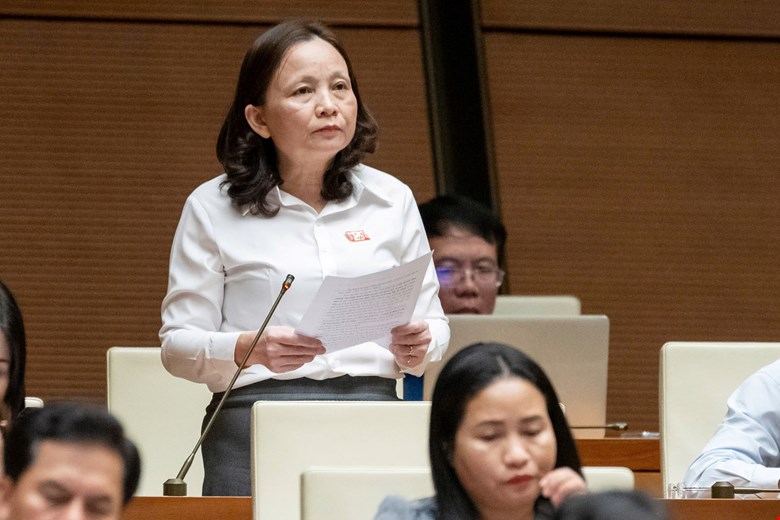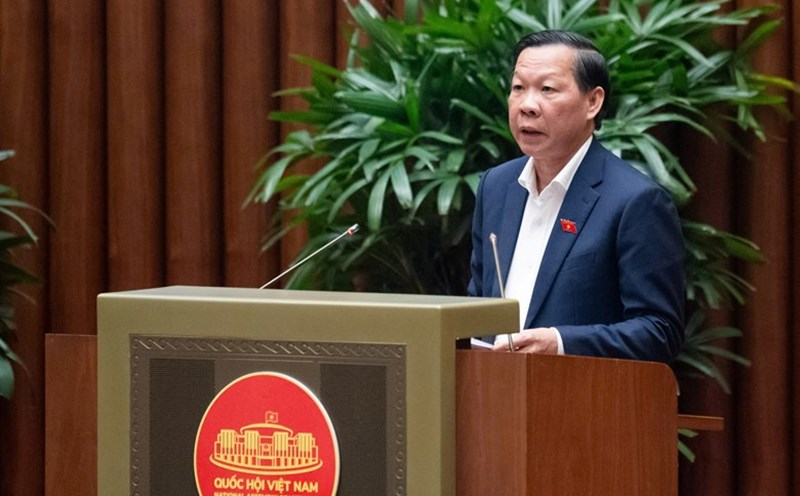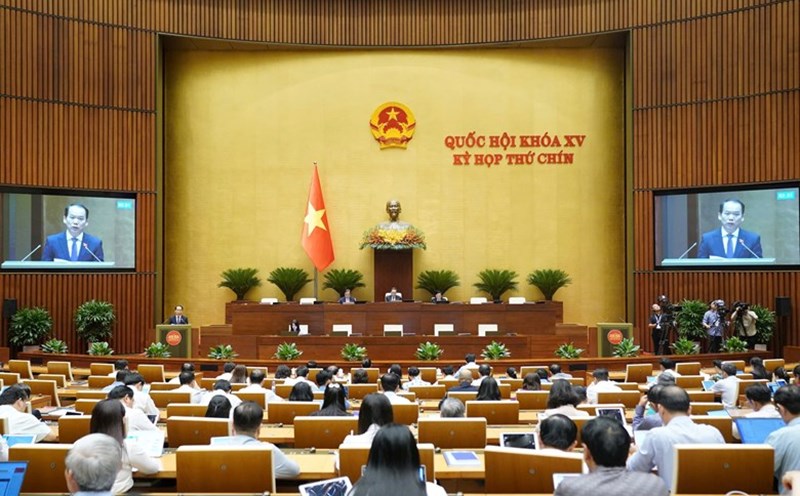On the morning of May 9, continuing the 9th Session, National Assembly deputies discussed in the hall a number of contents with different opinions of the draft Law on Special Consumption Tax (amended).
One of the issues that delegates are concerned about is the addition of sugary soft drinks to the special consumption tax list.
Because this item is newly added to the taxable list, there needs to be an implementation roadmap so that businesses have time to adapt, adjust production and business plans, and gradually switch to products with low sugar content.
Acquiring the opinions, the Standing Committee of the National Assembly agreed with the proposal of the drafting agency in the direction of the implementation roadmap: From 2027, the tax rate of 8%, from 2028, applies the tax rate of 10%.
Delegate Nguyen Thi Yen Nhi (Ben Tre Delegation) expressed her agreement with the addition of sugary soft drinks to the list of subjects subject to special consumption tax. This regulation aims to limit sugar consumption too high and orient consumption for people.
According to delegate Yen Nhi, "the regulation on applying special consumption tax on sugary soft drinks is not a than hack to change people's consumption habits", but requires propaganda and education on consumption orientation.
In particular, the health sector needs to have stronger warnings about the harmful effects of overusing sugary products. At the same time, with the participation of many new sectors and levels, people's consumption habits can change.
Not only that, the delegate noted that countries with a high amount of sugar are being sold everywhere on sidewalks, streets, and street vendors, but are not affected by this type of tax; there is a great need for management measures.
Sharing the same view, delegate Hoang Duc Thang (Quang Tri delegation) said that sugary soft drinks are not the only cause of overweight and obesity. Because the main reason for this is due to excessive use and overuse.
Therefore, the cause must be remedied, not just the special consumption tax. It is necessary to focus on propaganda work to raise awareness and change consumer behavior, which is a fundamental and effective measure such as "orsetting the right medicine".

Delegate Cam Thi Man (Thanh Hoa Delegation) expressed her approval of the regulation on a roadmap to apply taxes on new items such as soft drinks. Because this is an item related to 25 other industries in the value chain such as retail, tourism, restaurants, hotels, hundreds of sugarcane farming households, and sugar production companies.
Therefore, taxing new products requires a long preparation roadmap, especially in the context of businesses facing many difficulties and burdens in taxes and fees. In particular, the US is introducing a countervailing tax of up to 46% on goods imported from Vietnam.
According to the delegate, the Institute for Policy and Strategy Research also recommended applying a tax rate of 5% to the group of products subject to special consumption tax for the first time to minimize negative impacts on the economy.
For the above reason, the delegate said that the 5% tax rate plan will ensure the implementation of the set goals such as regulating consumption, regulating production, ensuring people's health, budget revenue, helping businesses adapt to the new tax.
The delegate proposed two options for taxing soft drinks.
Option 1: From January 1, 2027 to December 31, 2027, a tax rate of 5% will be applied; from January 1, 2028 to December 31, 2028, a tax rate of 8% will be applied; from January 1, 2029, a tax rate of 10%.
Option 2: From January 1, 2028 to December 31, 2028, the tax rate will be 8%; from January 1, 2029, a tax rate of 10% will be applied.











